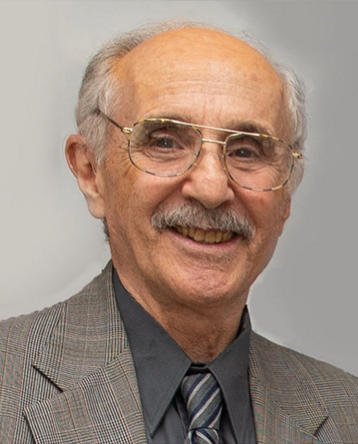Ed Rubin holds joint appointments as professor emeritus in the Departments of Engineering and Public Policy (EPP) and Mechanical Engineering. He was a founding member of the EPP Department and founding director of the Center for Energy and Environmental Studies and the Environmental Institute (forerunners of the Steinbrenner and Scott Institutes).
He is a Fellow Member of ASME, and recipient of awards including the CMU Distinguished Professor of Engineering Award, the AWMA Lyman A. Ripperton Award for distinguished achievements as an educator, the ASME Dixy Lee Ray Award for outstanding achievement in environmental protection, and the Greenman Award of the International Energy Agency Greenhouse Gas R&D Programme. He shared in the 2007 Nobel Peace Prize awarded to the Intergovernmental Panel on Climate Change.
He has served as an advisor to state and federal government agencies, including the U.S. Department of Energy, the U.S. Environmental Protection Agency, the Pennsylvania Department of Environmental Resources, and the State of California Energy Commission, Air Resources Board and Public Utility Commission. He is a National Associate member of the National Academies where he served on its Board on Energy and Environmental Systems and numerous study committees related to energy technologies, environmental policy, and global climate change.
Among his international activities he was an advisor to the Alberta Energy Ministry of Canada, Board member of the UK CCS Research Centre, and a coordinating lead author for the Intergovernmental Panel on Climate Change.
Rubin holds a Ph.D. and M.S. in mechanical engineering from Stanford University, and a B.E. in mechanical engineering from the City College of the City University of New York.
Research
Rubin’s research addresses technical, economic, and policy issues related to energy and the environment, with a strong focus on climate change mitigation and control of pollutants from industrial and power generation sources. His group pioneered the development of the Integrated Environmental Control Model (IECM), a stochastic simulation model used worldwide for designing and evaluating cost-effective emission control systems for thermal power plants, including current and advanced process for carbon capture and storage (CCS). A 2019 literature review identified Rubin as the most highly cited and published author in the field of CCS economic and environmental impacts
Rubin also studies the nature and pace of technology innovation for energy and environmental systems and the factors that influence it, including the role of government policies. Insights from this work have been used to estimate future cost trends for advanced power systems, and the influence of technological change on climate mitigation strategies. Additional research on energy and environmental systems, sustainability, and other topics is pursued in collaborations with the Carnegie Mellon Electricity Industry Center (CEIC), the Center for Climate and Energy Decision-Making (CEDM), the Steinbrenner Institute for Environmental Education and Research, and the Scott Institute for Energy Innovation.
Publications
Rubin’s publications webpage can be accessed on his website. Publications are searchable by year, topic, keywords, or names. Copies of all papers, reports, and talks can be downloaded free of charge.

